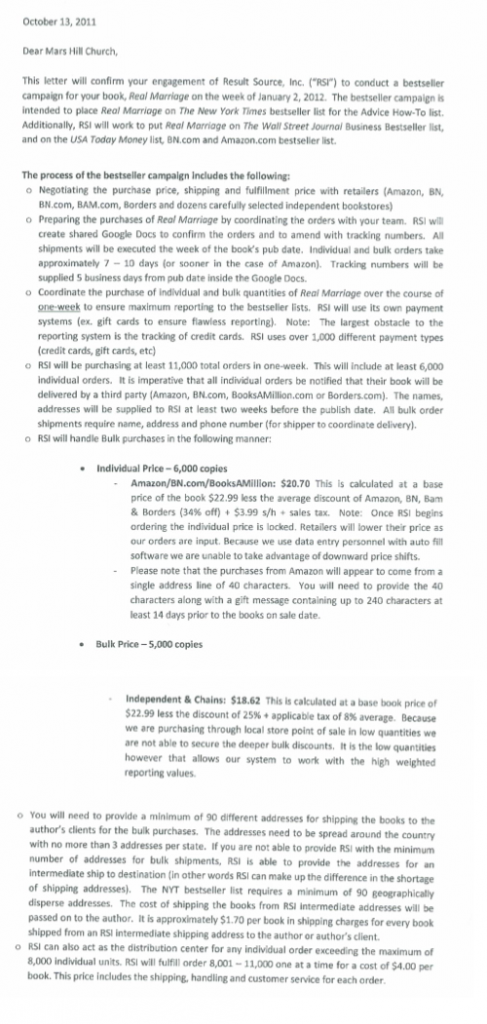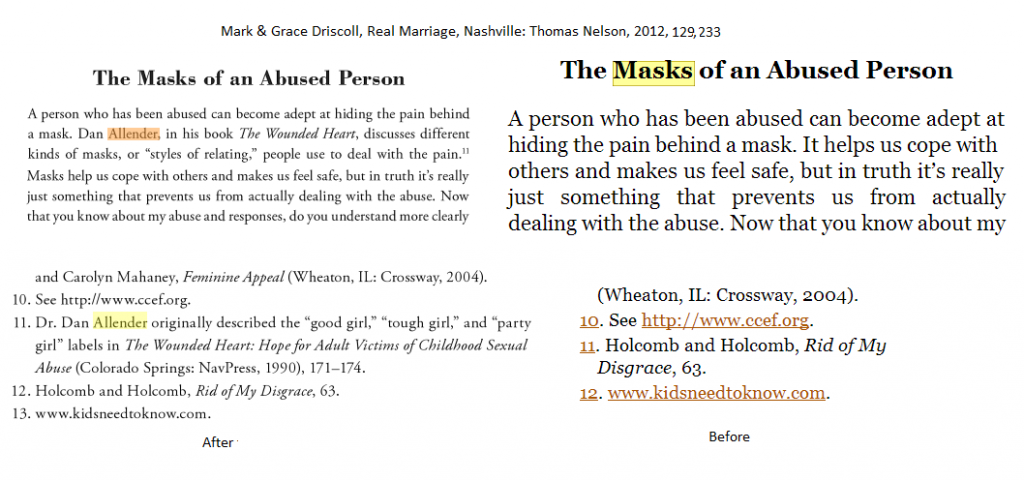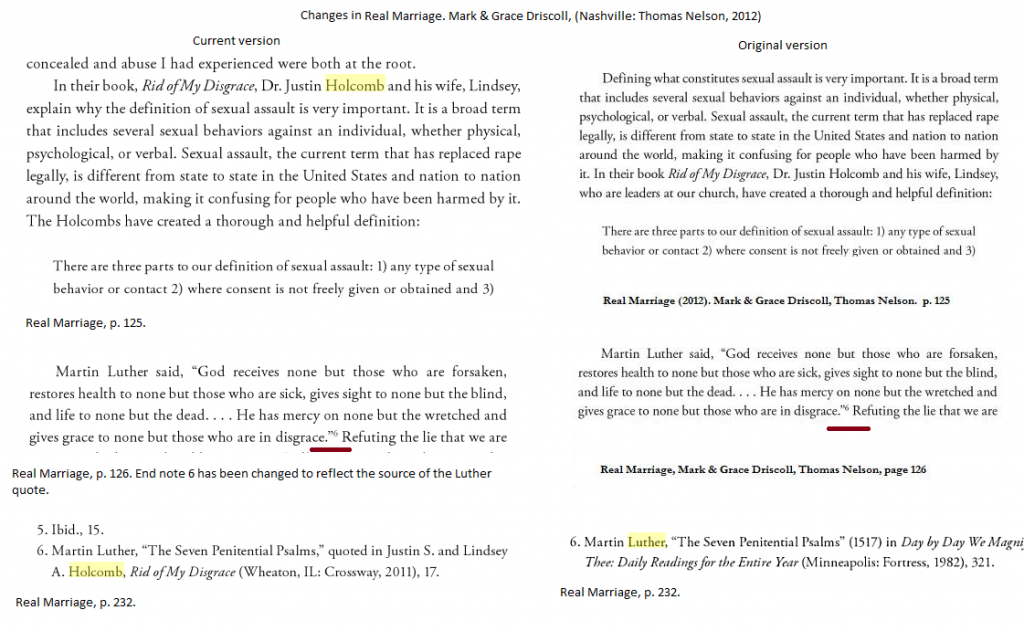In August 2012, Thomas Nelson (now part of Harper Collins Christian) pulled David Barton‘s book The Jefferson Lies from publication. This rare move by Thomas Nelson took place in the midst of efforts by several people to confront Barton with his errors. While I cannot tell the whole story (in part because I don’t know it and in part because the main players are not willing to discuss it completely), I can provide a little more insight into the situation. The door was opened to this by a footnote on David Barton’s website and other vague references to a series of meetings that took place in 2012. The footnote is on the page where Barton claims to explain false quotes from his first book. Barton says this:
Although many people, including several respected academics, have told David that they admire his honesty and transparency, others have attempted to use this practice against him. For instance, in a recent critique of David’s work, Professor Gregg Frazer of The Master’s College writes:
“Having been confronted over the use of false quotes, Barton was forced to acknowledge their illegitimacy in some way on his website. There, he describes them as “unconfirmed” – as if there is some doubt about their legitimacy. In a computer age with search capabilities, we know that these quotes are false – the fact that they are listed as “unconfirmed” reflects a stubborn attempt to hold onto them and to suggest to followers that they might be true. That is made worse by the fact that under these “unconfirmed” quotes are paragraphs maintaining that the bogus quote is something that the person might have said.” 2
What an interesting reward for trying to be honest and transparent.
Barton’s claim to be “honest and transparent” requires much more attention, but for the purpose of this post, let me move on to Barton’s description of the source of Gregg Frazer’s words. In the footnote, Barton explains the source of Frazer’s quote:
From a hostile written review of David Barton and WallBuilders written by Gregg Frazer at the request of Jay Richards. That written critique was subsequently passed on to David Barton on August 13, 2012, by the Rev. James Robison, to whom Jay Richards had distributed it.
After Jay Richards read my book with Michael Coulter, Getting Jefferson Right: Fact Checking Claims about Our Third President, he asked ten Christian historians to read both The Jefferson Lies, and then our book. Richards wanted to get expert opinions on the facts in each book. He also asked Gregg Frazer to review Barton’s DVD, America’s Godly Heritage (which is still for sale on Barton’s website).
With Frazer’s permission, the complete review of America’s Godly Heritage is now available here.
As is clear from an examination of the paper, Frazer did not look at each one of the quotes in Barton’s first book. He specifically examined the DVD series America’s Godly Heritage. Even though the DVD is still for sale, Frazer found faulty quotes in it.
As Barton says in his footnote, this paper was presented to Barton by James Robison surrounding the time when his book was pulled by Thomas Nelson (August 2012). Robison is an apostolic elder at Gateway Church and host of the television show Life Today. As this footnote reveals, Robison was in on the confrontation as was Richards and the Christian historians. While I don’t know specifics, some met with Barton at his ranch where he rejected their advice and counsel. Furthermore, Barton met with at least one leader at the Family Research Council in August 2o12. In that meeting, Barton’s errors were confronted with promises from Barton to provide corrected material. However, nothing happened on Barton’s end until the Family Research Council was confronted by numerous Christian historians in the Spring of 2013.
Despite numerous clear factual errors, FRC continues to have Barton involved in their presentations to pastors. As Politico documented in 2013 (Sen. Ted Cruz defends Barton in this article), Barton has been accepted back into the good graces of the political arm of the Christian right (e.g., this apologetics conference).
The awareness of Barton’s systematic distortion of the nation’s founding is well known at the highest levels of the Christian political right and yet many such groups continue to promote Barton as an exemplary historian. Because the Christian right is aware of the problems but continues to feature Barton as an historian, the “great confrontation of 2012” has turned into the “great cover-up of the present.”
Gregg Frazer’s review of America’s Godly Heritage is a devastating critique of this popular DVD program. It has been read by high level decision makers on the Christian right and ignored. I urge readers to read it and pass it around. I intend to give it more attention by focusing on various highlights in upcoming posts. Here is a follow up post on Frazer’s review.


